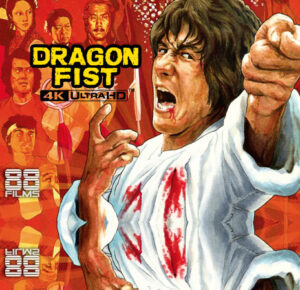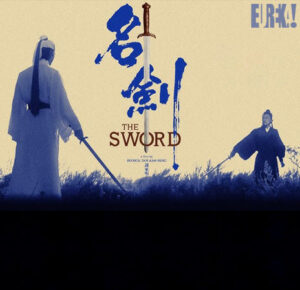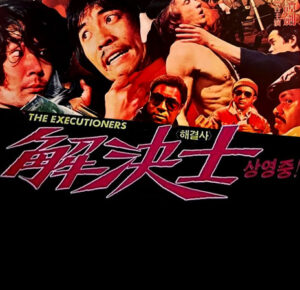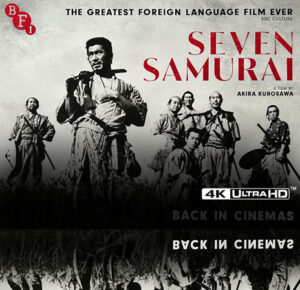Director: Yun Jong-Bin
Cast: Ha Jung-Woo, Kang Dong-Won, Lee Kyung-Young, Lee Sung-Min, Jo Jin-Woong, Ma Dong-Seok, Yun Ji-Hye, Ju Jin-Mo, Song Young-Chang, Jeong Man-Sik, Kim Byung-Ok, Kim Jong-Gu, Kim Seong-Gyun
Running Time: 137 min.
By Kelly Warner
I went into Kundo: Age of the Rampant expecting something like a Korean take on the Robin Hood tale. What I got was a Tarantino-infused post-modern historical action movie that tries to be both a martial arts film and a spaghetti western at the same time. There’s a whole lotta movie in Kundo’s 137 minutes.
The film opens on bodies left to rot in the fields. Birds and dogs dine on the carcasses. Decapitated heads are left on pikes. It’s a time of famine and oppression. The poor are left to beg for the smallest favors from the corrupt and cruel nobility. But there is a resistance. A Robin Hood-like gang of bandits called the Kundo put the corrupt on trial, take their riches and redistribute them among the poor.
The lowest of the low is the foolish butcher Dochi (Jung-woo Ha). Barely scraping by, Dochi is tempted by a big payday when a nobleman named Jo-yoon asks him to assassinate a whore. “She’s little different than a pig,” reasons Jo-yoon. But when Dochi backs out of the deal, he angers the nobleman and is sentenced to death. Moments before his execution, Dochi is rescued by the Kundo and is given the opportunity of joining the gang so that he may one day have his revenge.
When Dochi joins the Kundo, he transforms from the lowly butcher into an infamous fighter. Jung-woo Ha is one of Korea’s finest actors and he disappears into the character. Admittedly Dochi is not one of Ha’s most complex roles, but after this and other great performances in The Chaser and The Yellow Sea, I am convinced that Jung-woo Ha can play basically anybody.
Despite Ha’s notable screen presence, I believe the film belongs to the villain Jo-yoon as played by Dong-won Kang. I’ve never been terribly impressed by Kang in the past, but here Kang is in complete control, bringing a cool detachment to a villain that could have easily gone over the top. His villain can do more with a single cold stare than other lesser villains could do with a three page monologue.
Period pieces are all the rage in Asia right now. Some have a difficult time finding fans in the West because they focus too much on history and politics, and not enough on action. And though the plot of Kundo may make it sound like a dense retelling of Korea’s history, one full of backstabbing noblemen and political strife, Kundo’s much more focused on having a good time.
The film is self-aware, but never in an annoying way. An Ennio Morricone inspired score dominates the film. The major characters are introduced in flickering freeze frames (one is simply named ‘The Vicious Monk’). The screenplay is full of humor and the characters have a tendency of dropping some ‘motherf-ckers’ and other modern lingo to make themselves understood (one such line goes something like, “Attain your f-cking Buddhahood!”). I think that director Jong-bin Yun (Nameless Gangster) is clearly a fan of Quentin Tarantino, but I wouldn’t go so far as to say his movie is a rip-off of Tarantino’s style. Like Tarantino is fond of doing for the directors who have influenced him, Kundo: Age of the Rampant plays like a love letter to Tarantino’s films and his particular style of movie making.
Kundo: Age of the Rampant is a movie that knows it’s a movie. Now, that’s going to turn some people off who will wonder why they couldn’t just play it straight, which is a reasonable question. Personally, I like this stylistic choice as it sets Kundo apart from the rest of the historical actioners, making it a rather unique film.
On top of the surplus of style, we also get a heavy dose of well-done action. Director Yun shoots the large scale battles and the duels with equal skill. The swordplay is fast-paced and in your face, but it’s easy to follow and we never lose the characters in the action. Jung-woo Ha has an interesting fighting style as he swaggers onto the battlefield with some serious meat cleavers in either hand. And Dong-won Kang makes one believe that he is the unbeatable fighter his character requires him to be.
The film does feel a bit crowded at times. There are a lot of characters and many are not as defined as one would like them to be. It also takes a long time for Dochi to announce himself as the hero of the story. And one could argue that Jong-bin Yun would’ve been better off coming up with his own particular style instead of so openly mimicking others. Overall though, the movie works. It’s often dark and violent but it’s a lot of fun thanks to its playful style and an awesome villain.
I’ve read that when Kundo debuted in South Korea it broke the opening weekend box office record… only to have its record beaten in the very next week. Whether that says anything about the movie—like does it have staying power and will we remember it a year from now?—I have no idea. One thing it helps make clear is that this is an important time in South Korean film. The South Korean film industry is cranking out great, stylish movies made by some truly gifted filmmakers and the audiences are showing up. Kundo: Age of the Rampant may have clearly been inspired by international cinema, but it makes for an interesting addition to Korea’s ever-expanding list of quality films.
Kelly Warner’s Rating: 7/10























6 Comments